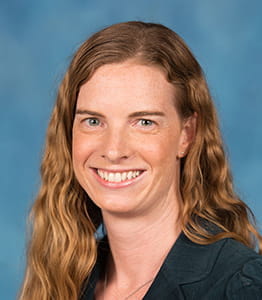
Dr. Aimee Ferraro originally wanted to be a medical doctor with the aspiration of healing sick patients. But, as she started learning more about preventive health, she saw how the public health field was more proactive in helping to prevent diseases.
“Someone in public health looks at how we can change a whole community’s behavior to stop the progression of a disease,” says Dr. Ferraro, an epidemiologist and senior core faculty member in Walden University’s Master of Public Health program. “I wanted to prevent people from getting sick in the first place, not take care of them after symptoms already presented.”
During April, people across the U.S. recognize National Public Health Week and learn more about the critical components and career opportunities within the field. One is epidemiology, where “disease detectives,” as Dr. Ferraro calls it, seek to understand where an illness is coming from and chase its roots until it can be stopped. At a time where healthcare experts across the world are dealing with the novel coronavirus (COVID-19) pandemic, this skillset is more important than ever. Public health professionals also focus on changing behaviors. They look at the public’s psychology and barriers, as well as how new habits can be formed to reduce the probability that one might get sick.
“The public health approach typically begins with education and awareness before progressing to other steps,” says Dr. Ferraro. “We give the public reasonable changes and, if needed, supportive efforts to reduce a barrier. In the case of COVID-19, we’re asking people to wash their hands more and wear face masks while explaining how to do so properly. In some cases, we may need to move to the next step of full-on intervention. With a former tuberculosis patient, a nurse needed to go to the patient’s house to administer medications. In more extreme mitigation measures, there is legal force in the form of a quarantine or closure of parks and non-essential businesses. That’s what we’re seeing now in response to COVID-19 – it can be important for behavior change and to reduce rates of transmission.”
In 2016, while living in Peru, Dr. Ferraro put this structure into practice while combatting the Zika virus epidemic. Because Peru is a subtropical environment filled with mosquitoes, she first had to ensure the public had the knowledge they needed to understand the risks facing them. From there, they could use that knowledge to put new, safer practices in place, including how to get rid of mosquitoes and prevent bites.
“We had community talks for each area to discuss what was reasonable for them,” said Dr. Ferraro. “In some cases, we used mosquito coils or spatial repellents around their houses, put up curtains where there were no screens, gave them personal repellant and asked them to wear long pants and shirts. The biggest obstacle was educating and helping residents, who don’t have running water, on the dangers of standing water. Each outbreak will have a different ‘thing’ and helping people to mitigate it will be the key.”
For the coronavirus pandemic, Dr. Ferraro believes proper hand washing, using face masks and social distancing will be key in helping to mitigate its spread. By instilling proper handwashing habits, she hopes it will also help to reduce cases of the flu and common cold in the future.
Recent pandemics, such as the coronavirus, swine flu (H1N1 flu) and Ebola, shine a light on how critical the public health field is to societies across the globe. People are seeing public health experts from the World Health Organization (WHO), U.S. Centers for Disease Control and Prevention (CDC) and National Institutes of Health (NIH) work together in real-time to address COVID-19. Public health leadership will continue to be paramount in containing COVID-19 and helping to prevent future outbreaks. Dr. Ferraro believes more students will gravitate to the field, like she did, now more aware of the impact public health professionals can play.
“Some people might be considering a career in public health because they are seeing new heroes, like the NIH’s Dr. Anthony Fauci, who were not known before,” says Dr. Ferraro. “I think there are a lot of people who are inspired by their efforts and will explore career options in public health to help others.”



